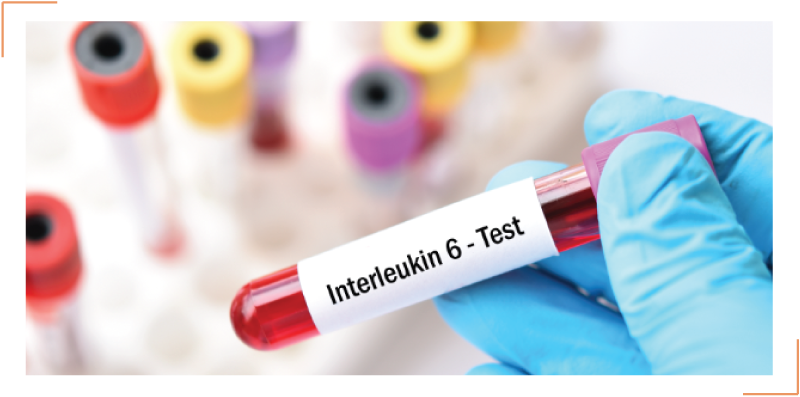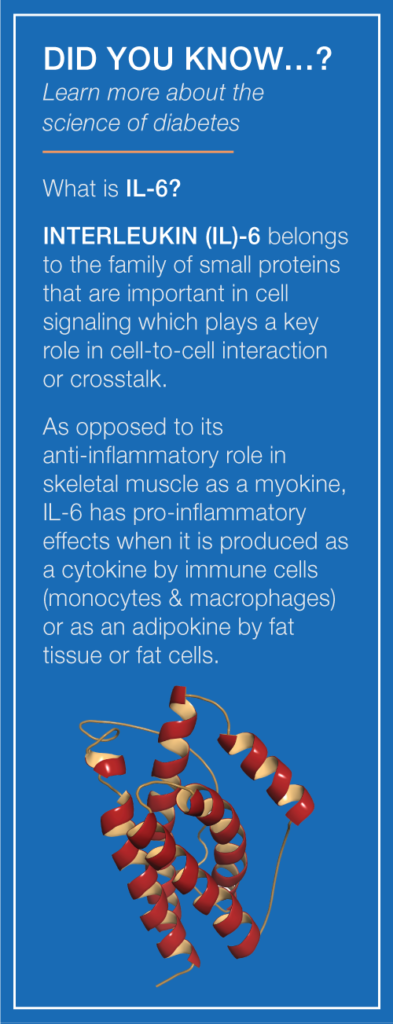Explore the most recent advances in the world of diabetes and its associated complications published in high impact journals and presented at international conferences
Scientists at DDI discover a new Branch in the regulation of IL-6 in Fat cells
Published on 03/10/2021
Kuwait is amongst top-ranking nations afflicted badly by obesity epidemic and its wide-scale complications such as increased blood pressure, heart disease, stroke, digestive problems, certain cancers, sleep apnea, asthma, osteoarthritis, type-2 diabetes, renal, musculoskeletal, and neurological diseases.

In obesity, there is an expansion of visceral fat located inside the abdomen and typically, increased levels of IL-6 are found together with other pro-inflammatory biomarkers, such as IL-1β and tumor necrosis factor (TNF)-α proteins. A clear evidence has been lacking whether IL-1β and TNF-α together could boost the production of IL-6 by fat cells. If so, one would expect to see worsened inflammation, asthma, sleep apnea, loss of insulin action, and lack of blood sugar control in people with obesity who have elevated expression of these inflammatory biomarkers.

DDI scientists have discovered that both mouse and human fat cells, particularly the abdominal fat cells from obese people, were able to produce high amounts of IL-6 when cultured with IL-1β and TNF-α, implying that obesity changes the fat cell characteristics in favor of increased production of IL-6 inflammatory protein. Next, the team found that inducer proteins (IL-1 β/TNF-α) worked at the nuclear level by favoring CREB binding at the CRE locus, enhancing H3K14 acetylation.
These epigenetic reprogramming events occurring in fat cells were further validated by IL-6 counter regulation by acetylation (less IL-6 production after treatment with anacardic acid or curcumin) and deacetylation inhibitors (more IL-6 production after treatment with trichostatin A).
Overall, this study contributes novel scientific data to the field by showing that fat cells in obese setting are reprogrammed to support the increased production of IL-6 inflammatory protein by other inflammatory cofactors IL-1β and TNF α, which may explain high levels of IL-6 in obesity and its related complications. Besides, this study paves the way for further studies to assess whether an antioxidant such as curcumin, which is a phenolic derivative of turmeric (a herb belonging to the ginger family Zingiberaceae), can be used as a dietary supplement to benefit people with obesity and its related complications.
Al-Roub A, Al Madhoun A, Akhter N, Thomas R, Miranda L, Jacob T, Al-Ozairi E, Al-Mulla F, Sindhu S, Ahmad R.IL-1β and TNFα Cooperativity in Regulating IL-6 Expression in Adipocytes Depends on CREB Binding and H3K14 Acetylation. Cells. 2021 Nov 19;10(11):3228. doi: 10.3390/cells10113228.


